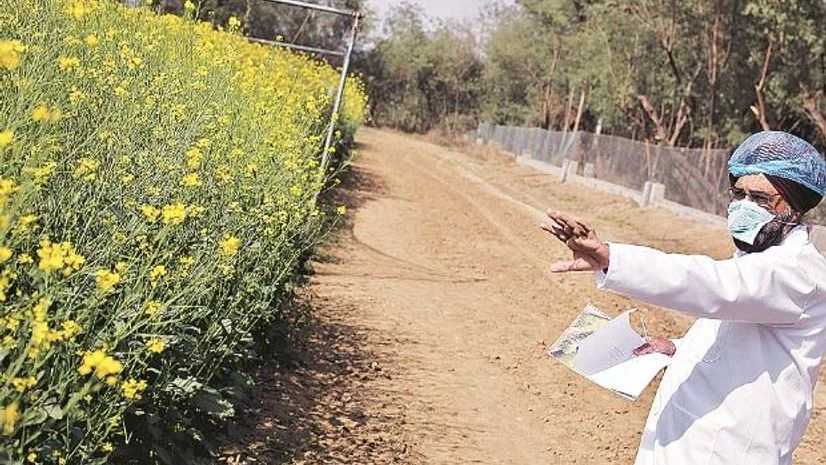GM (genetically-modified) mustard is touted as something that is indispensable to raising productivity, especially in the face of climate change. However, cultivating GM mustard is not the only way to achieve this. There are alternatives that are both ecologically and economically beneficial. One of them is the organic and nursery-type-spacing technique of SRI that is, System of Root Intensification. This is being practised in Odisha, Chattisgarh, Jharkhand, Madhya Pradesh, Bihar, where it is giving an average mustard yield of 31 quintals per hectare and a maximum of 57 quintals per hectare, all of that is estimated to have the capacity
Letter to BS: Why is non-renewable GM mustard being pushed for field trial?
Bt toxin in GM foods is found to survive in the blood of pregnant women and foetuses
)
Premium
Genetically modified food has been opposed by activists and politicians in India due to fears that it could compromise food safety and biodiversity | Photo: Reuters
What you get on BS Premium?
-
Unlock 30+ premium stories daily hand-picked by our editors, across devices on browser and app.
-
Pick your 5 favourite companies, get a daily email with all news updates on them.
Full access to our intuitive epaper - clip, save, share articles from any device; newspaper archives from 2006.
Preferential invites to Business Standard events.
Curated newsletters on markets, personal finance, policy & politics, start-ups, technology, and more.
Need More Information - write to us at assist@bsmail.in
